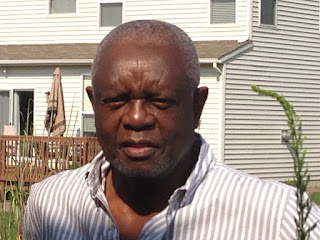In the remaining eleven months until the watershed August polls, there will be elevated rhetoric, hate speeches, and even (God forbid) violence, as Uhuru Kenyatta struggles against fierce opposition to retain the presidency for a second five-year term.
It is clear now, after the successful opposition rally in Mombasa over the weekend, that Raila Odinga of the Orange Democratic Movement, not Kalonzo Musyoka of the Wiper Party, not Moses Wetangula of Ford Kenya, will be the presidential candidate for the Coalition for Reform and Democracy (CORD).
Officially, the event was to celebrate the 10th anniversary of ODM, but the optics pointed to a coronation ceremony for the former political detainee.
Raila is 71 years old and this could be his last chance to State House. He has missed the presidency three times. We have to wait and see if he will succeed this time around. For him, this is a do-or-die battle.
This week, Raila and a team of 50 of his officials are leaving for a retreat in Germany to strategize. No details are forthcoming as to who is funding the trip and why they have to go all the way to Europe to brainstorm about the forthcoming polls. What is known is that Raila schooled in Germany, speaks German fluently, and has lots of friends there he can call upon to bankroll the stay
If Uhuru loses, he will be the first president in Kenya's history to rule for only one term.
In 2007 Kenya rode through a major crisis after Raila alleged theft of votes by Kibaki. Over a thousand people were killed in post-election violence that followed. He repeated similar charges in 2012 when he battled Uhuru. That time around, common sense prevailed and no serious cases of violence occurred.
That Kenyans and the world are worried about the fate of the next Kenyan elections is not a secret. The political temperatures are high and are likely to climb further as the election approaches. A taste of that was seen a few days ago when Uhuru and Raila exchanged nasty words during the funeral of a veteran Maasai politician, William Ole Ntimama.
The good news is that both Uhuru and Raila have publicly pledged to avoid violence next time around. The question is whether they can contain their overzealous supporters from engaging in looting and destruction of property.
Uhuru has made it clear that he wants to keep the presidency in the Jubilee stable well beyond 2017, and has already picked up his successor, deputy president William Ruto. But 2022 is too far away and anything could happen, depending also on whether or not Uhuru will retain his seat next year.
Of course Uhuru surrogates, beneficiaries of government tenders and favors, as well as elements that have made corruption a career, would not want to see Uhuru leave office any time soon.
In recent years, corruption has taken a huge leap for the worst. The malaise started during Mzee Jomo Kenyatta; it deepened during 24 years of President Daniel Arap Moi's rule; spiraled when Kibaki was in power for eight years; and has multiplied exponentially in the last four years.
The situation is so bad that even Moi - who many consider to have presided over the most corrupt regime so far - remarked earlier this year
Back to the elections. The ICC has already warned that it wouldn't hesitate to prefer charges against anyone who would be involved in any type of activity that could be classified as crime against humanity. After the nasty experience that led to six top Kenyan officials going to the ICC - Uhuru being one of them - I doubt Kenyans would want to go through that again.
It is imperative therefore that leaders and their supporters show tolerance and restrain from now, and all the way to election time and beyond.
And that is my say.

No comments:
Post a Comment